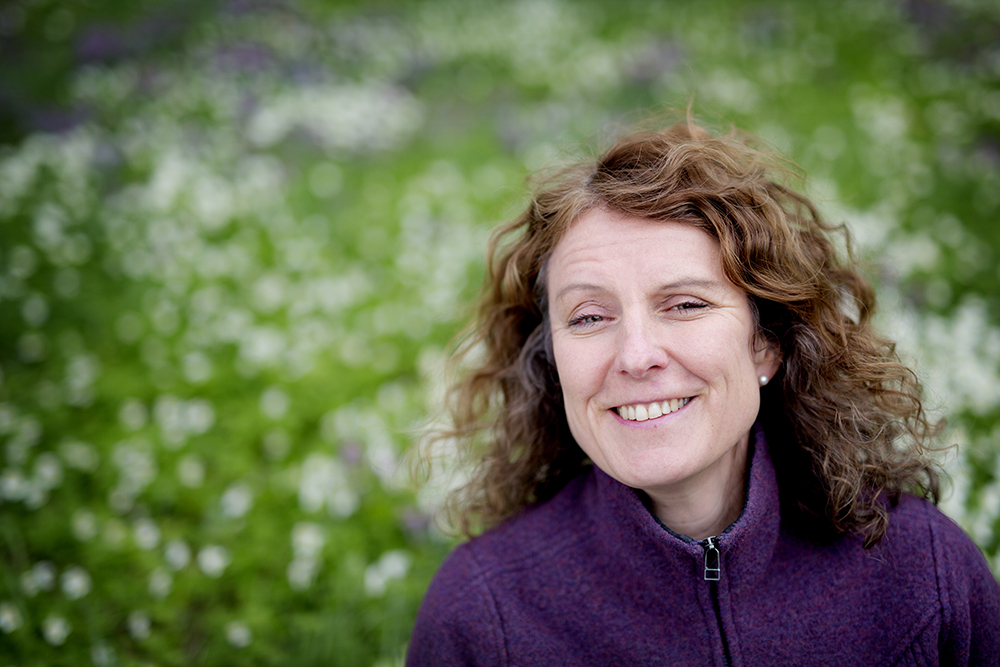Marine ecologist awarded the 2018 Research Award
The Faculty of Science’s 2018 Research Award has been awarded to marine ecologist Anna Godhe at the Department of Marine Sciences. Her research deals with phytoplankton ecology and evolution.
The Faculty of Science’s 2018 Research Award has been awarded to marine ecologist Anna Godhe at the Department of Marine Sciences. Her research deals with phytoplankton ecology and evolution.

How does it feel to be given the faculty’s Research Prize?
“Obviously I’m very happy and it’s wonderful that my efforts, together with my colleagues here in Gothenburg, around Sweden and around the world, are recognised.”
What is your research about?
“More recently, my research has largely dealt with how diatoms adapt to changes in their environment. We do this by studying sediment core samples. These contain resting spores that have fallen to the bottom of the ocean and from dated layers in the sediment core we can ‘revive’ diatoms that are more than 100 years old. In this way, we study how diatoms have adapted to specific environments.
For example, we have taken sediment cores from near a nuclear reactor. The reactor releases cooling water in its vicinity, thus raising the temperature of the water locally. We have revived diatoms from before and after the power plant started operating to see how the diatoms’ genes have changed over time, as an adaptation to the higher temperatures.
Another part of my work deals with studying if we can use micro algae as a source of biofuel in the future. I am also contributing to an interdisciplinary project studying how antibiotic resistant genes are spread in the marine environment. Examples of what we study include whether bacteria that are carriers of antibiotic resistant genes can piggyback on phytoplankton to new areas.”
What benefits does your research offer society?
“Diatoms are crucial. They capture 20 per cent of global carbon dioxide and are also the base in the ocean’s food chain. This means that without diatoms, there would be no fish. By studying how diatoms can adapt, we are able to predict more easily what will happen in the future. The spread of antibiotic resistance is a huge problem, not just within healthcare but also in our environment.”
What are you working on now and do you have any plans for the future?
“Right now, I am supervising a doctoral student who has collected a sediment core from near a closed copper mine. The experiment is trying to understand how diatoms have initially adapted to polluted water and then how they have recovered after the mine was closed and the water quality improved. We will work closely with an ecotoxicologist, which is new for me, so that will be exciting.
This winter, together with a Swedish postdoc, I will travel to southeast India, an area with lots of prawn farms. Together with Indian colleagues, we will continue our work studying how the spread of antibiotic resistance occurs in marine settings.”
“Anna Godhe is a marine ecologist with specific expertise and research interests in the molecular ecology of phytoplankton. Her pioneering research brings together conventional disciplines in widely differing research projects, together with national and international colleagues from vastly differing disciplines.
Anna Godhe has discovered and uses a system where she can revive diatoms to life from sediment that is several hundreds of years old. This makes it possible to study both currently living and very old individuals of the same species from the same place and to compare them to discover how the environment and climate have impacted them. Anna Godhe has created a dynamic and successful research environment around this approach.”
The Research Award is given for developing a research line that significantly contributes to novelty of the research at the Faculty of Science. The award holder will receive a diploma and a prize of 250 000 SEK for research.